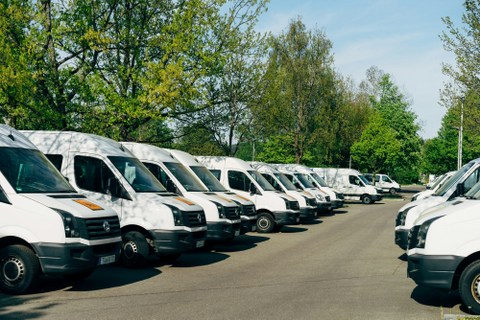Smart Technology to Keep Up and Get Ahead
This article may contain affiliate links.
The car rental industry is kicking into high gear, with the global market poised for significant growth. According to a report by Technavio, the market size is projected to expand by $157.34 billion between 2024 and 2028, achieving a compound annual growth rate (CAGR) of over 20.47%. This surge is driven by technological advancements, a focus on sustainability and evolving consumer needs. As the industry accelerates, car rental companies face the challenge of keeping up with these trends while navigating an increasingly competitive landscape.

To stay ahead of the curve, car rental companies must streamline their operations and reduce costs. Leveraging new tools and software can be a game-changer, enabling businesses to boost efficiency and deliver superior service.
In this article, we’ll explore three tools that can help car rental businesses streamline operations and remain competitive.
Fleet management software
Fleet management software is designed to address the complexities of managing a diverse and dynamic vehicle fleet. These systems provide businesses with comprehensive data in an easily digestible format, covering everything from vehicle locations and diagnostics to driver behavior. The recent integration of artificial intelligence (AI) and machine learning (ML) in modern fleet management software further empowers businesses to quickly identify and rectify anomalies, ensuring optimal fleet performance.
One such tool is Autofleet, a fleet management system enhanced by the new Nova language model. This advanced system enables businesses to better manage fleet operations, automating routine tasks and providing actionable insights. The Nova language model supercharges Autofleet’s capabilities by understanding and processing natural language queries, making it easier for businesses to access and interpret crucial data. From predictive maintenance to real-time tracking, Autofleet helps car rental companies minimize downtime, reduce costs and improve overall fleet efficiency.
Contract renewal management software
For Business-to-Business (B2B) car rental companies, managing contracts with corporate clients can be a daunting task. Unlike consumer-oriented services, B2B car rental businesses cater to the specific transportation needs of corporate clients, often involving complex agreements and long-term contracts. Managing these contracts is vital to maintaining revenue streams and ensuring client satisfaction.
SOFTRAX’s robust contract renewal management software simplifies this process, automating contract renewals and lifecycle management. The software can generate lists of contracts and subscriptions up for renewal, applying configurable rules based on date, product, location or customer. It can handle both automatically renewing contracts and those requiring negotiation. This comprehensive approach helps B2B car rental companies reduce revenue loss and gain quick access to data needed for timely renewals, ensuring that no opportunity for revenue generation is missed.

Battery management systems
As car rental companies continue to incorporate electric vehicles (EVs) into their fleets, managing battery performance becomes a critical concern. In the case of Hertz, driver complaints and battery-related problems (among other issues) led the company to sell off a fifth of its Tesla fleet. This highlights how battery management can make or break your business.
A battery management system (BMS) monitors and optimizes the performance of EV batteries, ensuring that they meet the demands of daily rental operations. Companies like Qnovo are leading the way with a BMS that bridges the gap between battery capabilities and performance demands, addressing issues related to range, charging and cost. As of 2023, Qnovo has unveiled SpectralX, a battery management software that reduces charging times to ~20 minutes, improves range by up to 10%, extends battery life cycle to nearly 1M kilometers and targets zero battery thermal events in electric vehicles.
The car rental industry is undergoing a period of rapid growth and transformation. To stay competitive, businesses must adopt tools that streamline operations, reduce costs, and enhance service quality.














